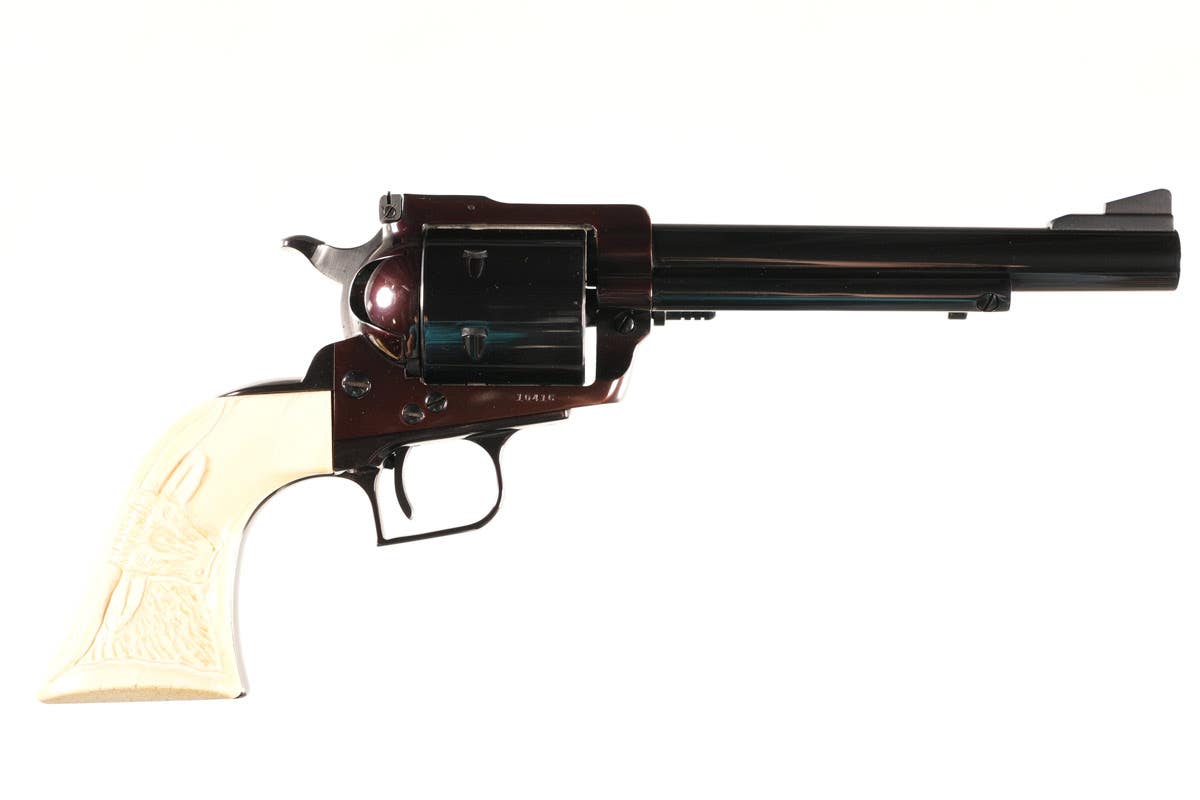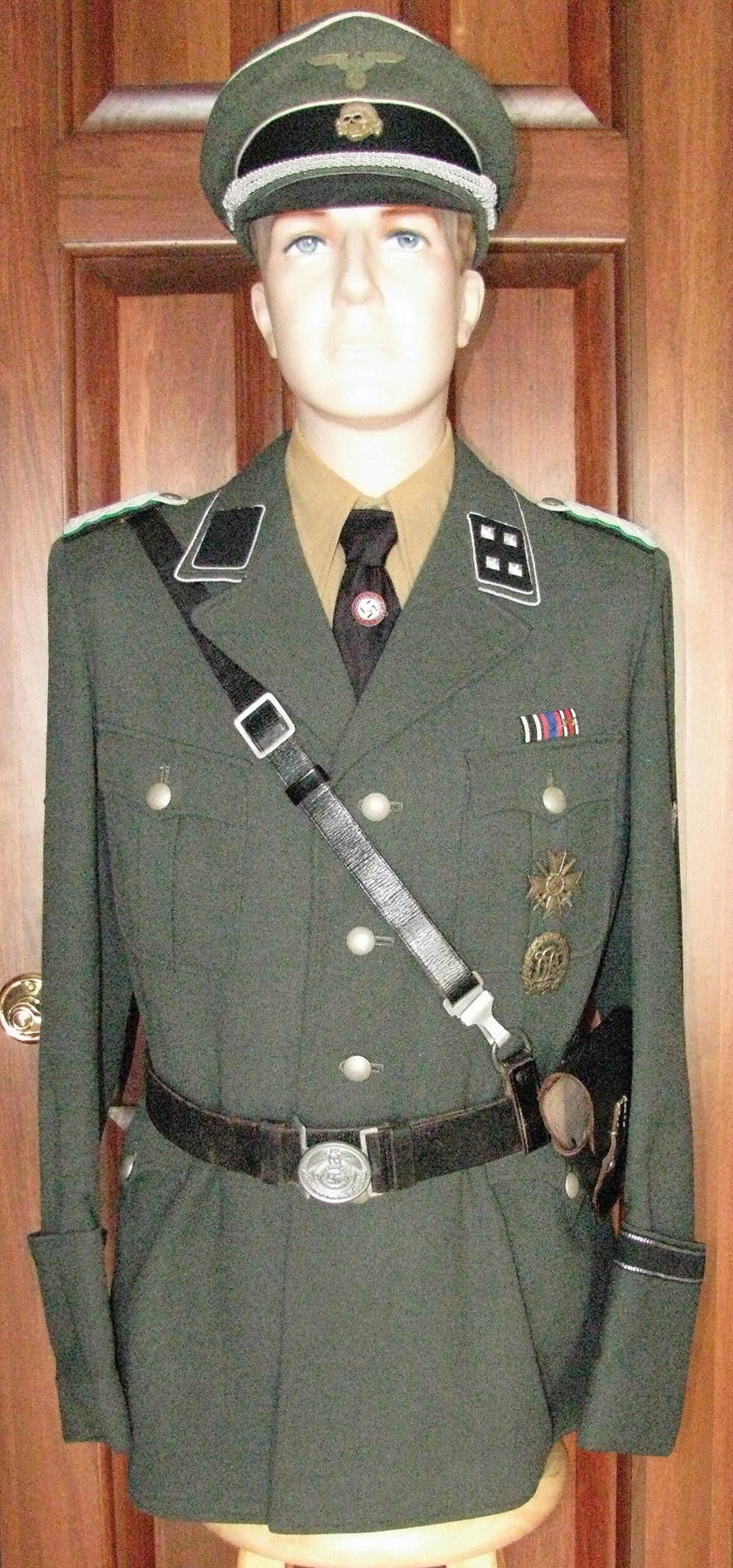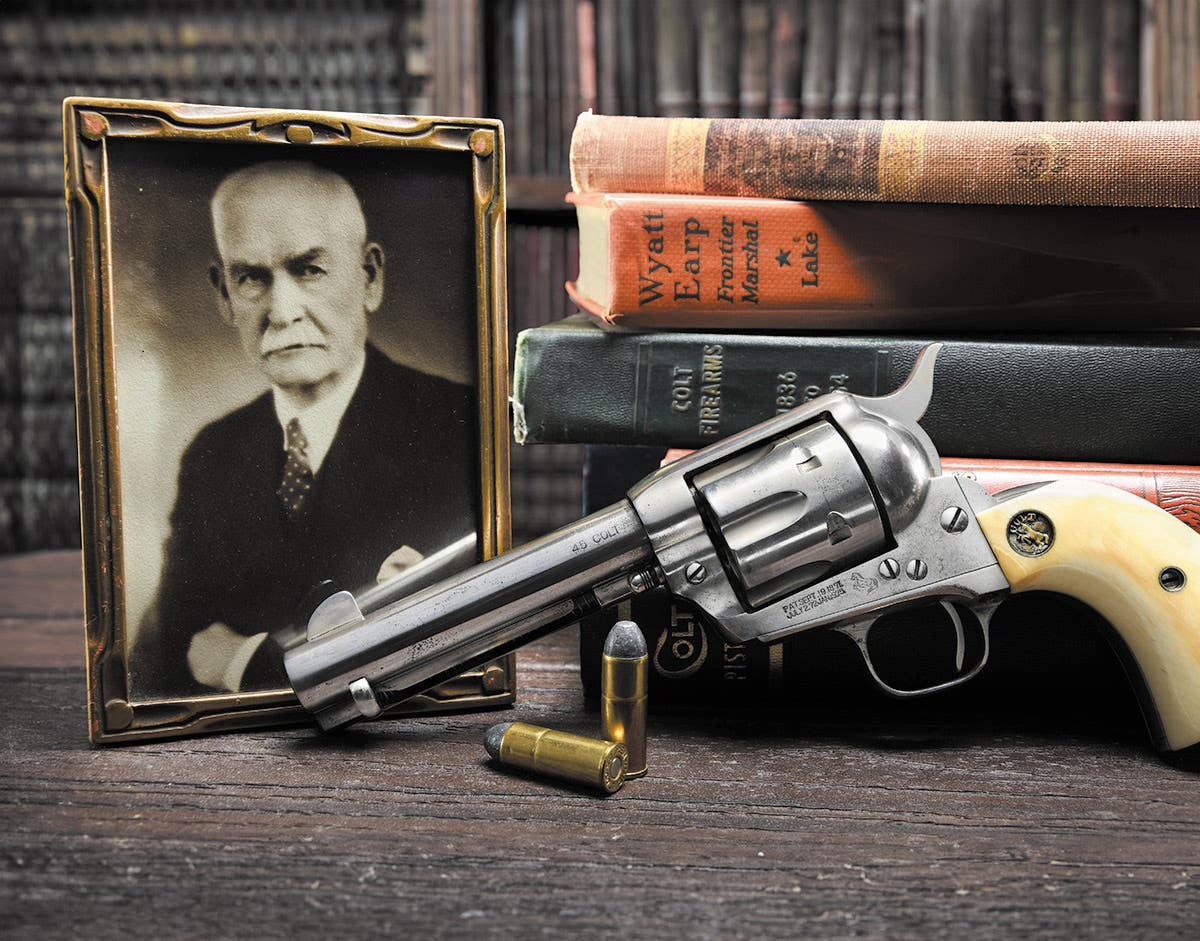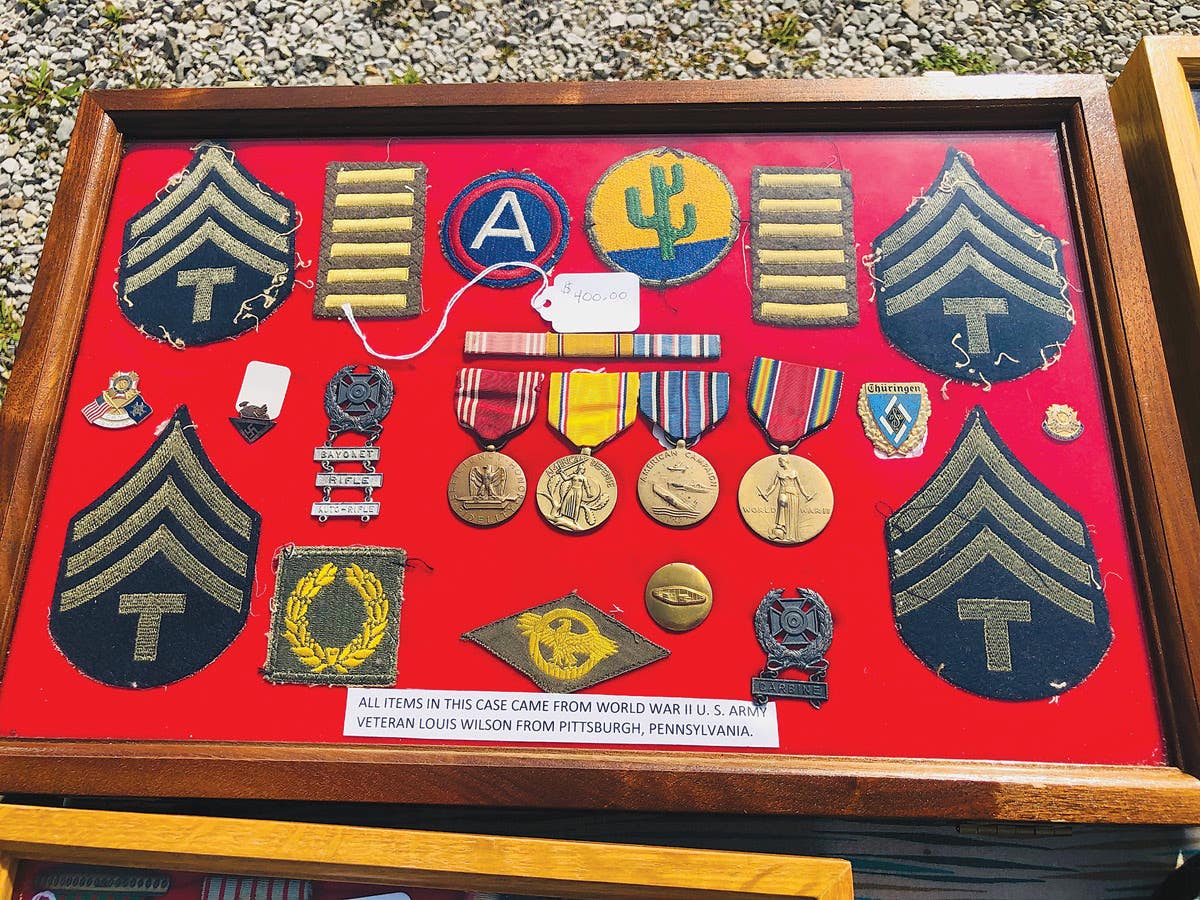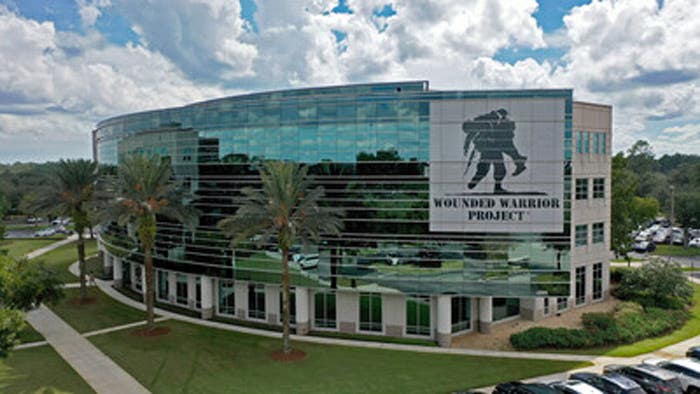Llewellyn Chilson
Seven awards for gallantry but should he have received the MOH too?
Years after the fighting was done, Master Sgt. Llewellyn Chilson shook hands with 1st Lt. Audie Murphy. It was their only meeting. Chilson and Murphy both fought in Sicily and at Salerno and Anzio. Both participated in the Allied invasion of Southern France, fought in the Vosges Mountains, and ended the war in Germany. Both killed Germans. Both were wounded.
In the get-together at Fort Hood, Tex., the two soldiers talked about their war time experiences. Murphy had planted new roots in Hollywood where he would soon portray himself in the celluloid version of his biography "To Hell and Back." The publicity machine labeled Murphy "the most decorated American of World War II," even though he was not. An American president said Chilson should have received the Medal of Honor, even though he did not.
OHIO BOY
Chilson was born in Ohio on April 1,1920 and grew up on the streets of South Akron. He may have learned more about fighting than about the Three Rs at South High School where he later said he received his first taste of combat and survival---but not a high school diploma. "The neighborhoods where I grew up were pretty tough," said Chilson. "They were real tenderloins."
Master Sgt. Llewellyn M. Chilson (left) and Medal of Honor recipient Audie Murphy shake hands during the only meeting between two of the Nation's most highly decorated heroes, at Fort Hood, Texas, sometime between 1950 and 1952.
Sixteen years old in 1936, Chilson became a driver, hauling freight across the country in a truck and trailer. He drove about 250 miles and day and made $ 40 a week, considered a hefty wage at the time. It all ended on March 28, 1942 when Chilson, almost 22, was drafted. He showed up at Fort Benjamin Harrison, Ind., weighing 150 pounds and standing 5 foot, 8 inches in height.
After infantry and amphibious training, Chilson joined the 179th Infantry Regiment, 45th Infantry Division, the "Thunderbirds." With the division, he landed in Sicily in July 1943, on the Italian mainland in September, and at Salerno and Anzio beachhead in February 1944.
A German shell fragment ripped into Chilson's face near Carroceto, Italy on February 15, 1944. He continued firing his M1 carbine until he ran out of ammunition. The Germans captured him and a few other Americans but amid an artillery barrage Chilson actually talked his way out of captivity. The Purple Heart bestowed on the private first class was Chilson's first decoration.
UP THE RANKS
Chilson became a corporal in April 1944, a buck sergeant and assistant squad leader in May. He was a technical sergeant by August 15, when he went ashore with his division in Southern France in Operation Anvil. By late fall, Chilson and his fellow soldiers were fighting in the Vosges Mountains, near German-held Denshein, France.
Technical Sgt. Llewellyn M. Chilson, 45th Infantry Division, was the first solider to receive seven decorations at one time. At a White House ceremony on December 6, 1946, he received the Distinguished Service Cross with two oak leaf clusters, the Silver Star with one oak leaf cluster, the Legion of Merit and the Bronze Star Medal and the Purple Heart.
On November 24, 1944, German machine gun and rifle fire halted Chilson's platoon in nocturnal darkness on a mountain road. Chilson set his machine gun up and advanced, alone, toward the foe. He crawled to within 60 feet of the German roadblock, threw two hand grenades, and charged with submachine gun blazing. Chilson killed three Germans and induced nine to surrender. He was awarded the Silver Star medal.
December 13, 1944 marked the 45th division's 365th day in combat. Chilson became a platoon sergeant two weeks later.
On March 15, 1945, the "Thunderbirds" jumped off from the Sarreguemines area and fought through the industrial Saar. Early in the morning of March 26, the division was at the Rhine River. When the Americans began to cross the river at Gernsheim, the Germans attacked with a furious barrage of rifle and machine gun fire. The Germans also fired with 20-millimeter cannons--designed as anti-aircraft guns but used as light artillery.
INTO ACTION
When another platoon leader was wounded, Chilson took command. According to records, he "quickly organized the platoon into a compact, efficient assault force and with vigor and keen judgment led his force along the river bank." In the subsequent firefight, Chilson and his soldiers killed 11 Germans and took 225 captive. He personally destroyed an ammunition vehicle and two heavy machine guns, and made possible the capture of two other heavy machine guns and the destruction of three enemy flak vehicles. This was the action for which Chilson received his first award of the Distinguished Service Cross--the second highest U.S. award for valor.
In the early 1950s, Master Sgt. Chilson returned to Germany for a tour of duty. Here, he walks along a local street with his daughter.
On March 31, 1945, as Chilson led his platoon near Horsenthal, the Germans opened up with heavy fire from two flak vehicles behind the town. German riflemen and machine gunners began firing at the Americans from positions in front of the town. Chilson ran back 300 yards through the heavy fire, climbed atop a tank, and rode it back to the front--where he began directing counter-fire. With shells exploding and bullets flying around him, he remained in his exposed position to observe the foe and relay detailed fire orders. His soldiers killed six Germans and captured seven. Chilson received a second Silver Star because, read the citation, his actions "were a deciding factor in the success of military operations" in Horsental.
Earlier that day, March 31, 1945, Chilson earned a Bronze Star medal for valor when he led a 5-man combat patrol into Obernau, Germany. The citation for the award commends him for "completely disregarding his personal safety under intense enemy small arms fire" and for "gaining invaluable information on the enemy defensive position."
MORE RECOGNITION
For this amazing five-day performance surrounding the crossing of the Rhine, Chilson also received the Legion of Merit for "exceptionally meritorious conduct." The citation for this prestigious award, which had been created by President Roosevelt in 1942 and was rarely given to enlisted men, recognizes that Chilson assumed command of his platoon after his superior was wounded and that Chilson and his men spearheaded the attack on Horsenthal.
After clearing German units from the Aschaffenburg area, the 45th Division drove on towards Nuernberg. On April 25, 1945, Company G moved into Meilenholen. When the Germans opened up with 20mm cannon fire, Chilson again took aggressive action. He spotted the enemy firing position, got into a jeep and, armed only with a machine gun, drove down the main road and into the town. Then, all alone and very much in an exposed position, Chilson opened fire. At the end of the firefight, Chilson had personally killed 40 Germans, knocked out two flak guns and an 88 mm howitzer. He also made another "88" ineffective "by knocking out its crew."
A short time later, American soldiers on a reconnaissance mission attempted to take the village of Zell. After 20mm cannon fire stopped their advance, Chilson mounted an abandoned Wehrmacht motorcycle. The vehicle must have been unfamiliar to him, but he sped out in front of the reconnaissance troops and found six more German 20mm gun positions. One of these cannons opened fire when he was just 50 yards away and shot the motorcycle out from under him. As an official record put it, Chilson "hit the dirt, rolled, got to his feet, charged the gun position and tossed a grenade which killed three members of the enemy gun crew and knocked out the gun." This earned Chilson yet another Distinguished Service Cross.
Two days later, on April 27, 1945, Chilson and his men crossed the Danube. While they faced no opposition in paddling across the river in their assault boats, that changed when the soldiers entered Neuberg, Germany. Shortly after entering the town, Chilson and his platoon were halted by intense automatic weapons fire coming from a second story of an apartment building. Realizing that unless the Germans were knocked out immediately many in his platoon would be killed or wounded, Chilson acted. Taking no concern for his own safety, he rushed through the hail of bullets that were sweeping across the street and ran into the apartment. Racing up the stairs to the second floor, he tossed a grenade into the room, killing two Germans who were manning a machine gun. The remaining eight enemy soldiers, no doubt awed by Chilson, quickly surrendered to him--and his platoon then occupied the building without having suffered a single casualty.
Minutes later, one of Chilson's squads was moving into the adjoining apartment house when it was stopped by automatic rifle fire from across a courtyard. Once again, Chilson moved into action. He threw a white phosphorous grenade into the courtyard and, using the smoke as a screen, attacked with his M-1 carbine. He was hit in the right arm but did not slow down: he shifted the carbine to his left hand and continued firing. Chilson killed two members of the enemy machine gun crew before he ran out of ammunition. When a third German tried to get away, Chilson pursued him, clubbed him into unconsciousness with the butt of his carbine and took the man prisoner along with seven others. He then called his platoon forward and they occupied the building without a casualty. According to an official account, "his job finished, he fainted from loss of blood." He received a third--and final--Distinguished Service Cross for this act as well as a second Purple Heart.
WAR'S END
This gallantry in Neuberg was Chilson's last combat experience. The war ended in Europe 10 days later and the 45th Division moved into Munich. Chilson was evacuated to the 34th General Hospital in Stockbridge, England. On June 21, 1945, almost two years to the day from having stepped ashore in North Africa, Chilson departed for the United States.
After leaving active duty, Chilson took a job as a chemical laboratory assistant with J. Bishop and Company in Malvern, Pa. But, like many who had excelled as soldiers, Chilson missed the Army. He re-enlisted in November 1947. For the next 17 years, until he retired as a master sergeant in 1964, Chilson served in various assignments in the United States and overseas.
RANK INJUSTICE?
So why didn't Chilson receive the Medal of Honor? Months after V.E. Day, Lt. Col. Louis K. Hennighausen, Jr., commander of the 179th Infantry Regiment, submitted an August 3, 1945 recommendation that Chilson receive the Medal of Honor.
Established by Congress in 1918, the Distinguished Service Cross (DSC) is awarded for extraordinary heroism. Only the Medal of Honor outranks it in the "pyramid of honor." Chilson's unprecedented combat gallantry resulted in three awards of the DSC.
The War Department considered the matter in 1946, but a majority of the Board disapproved the Medal of Honor. "The recommendation," wrote the Board, "reveals a highly commendable performance as a platoon leader, but does not clearly establish incontestable proof of conspicuous gallantry and intrepidity at the risk of life above and beyond the call of duty."
As a result of the Board's August 1946 decision, the European Theater recommendation for a Medal of Honor was returned to the command, which then awarded the three Distinguished Service Crosses, a second Silver Star, Legion of Merit, Bronze Star and second Purple Heart--all of which Chilson received from Truman.
The Army re-opened Chilson's case in April 1947 and, again, considered a Medal of Honor for him. The result was the same. Over the years, Chilson's family tried to persuade the Army award him the medal. Their last attempt--by requesting relief from the Army Board for the Correction of Military Records in the 1980s--also was to no avail.
At the White House on December 6, 1946, President Harry S. Truman pinned seven combat awards to the Chilson's chest. No American had ever received so many high-ranking decorations at one time. There were three awards of the Distinguished Service Cross, two of the Silver Star medal, one Legion of Merit, one Bronze Star medal and one Purple Heart.
The White House ceremony was one of the only occasions when a president presented decorations other than the Medal of Honor. Truman gazed at the medals adorning Chilson's uniform. He looked at the paperwork. "This is the most remarkable list of citations I have ever seen," said Truman. "For any one of these, this young man is entitled to all the country has to offer. These ought to be worth a Medal of Honor--that's what I think about it."
Chilson, who died in 1981 at age 61, is interred at Tacoma's Mountain View Memorial Park.



